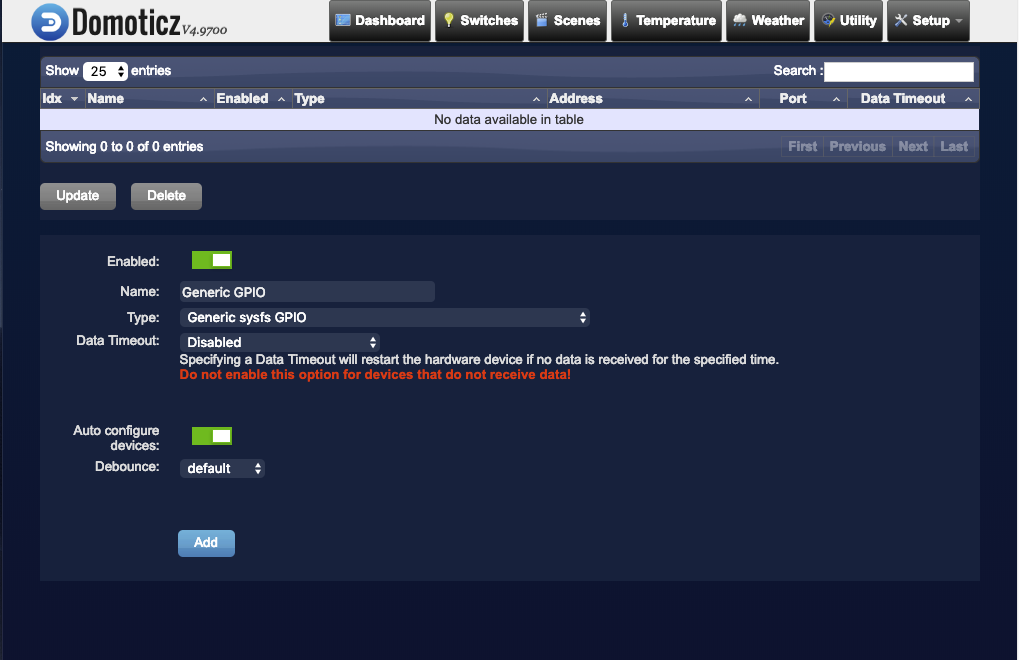Compile dev_domoticz from sources :
https://www.domoticz.com/wiki/Build_Domoticz_from_source
Install rtl_433 :
sudo apt-get install rtl-433
sudo rtl_433
Using systemd service:
sudo nano /etc/systemd/system/domoticz.service
[Unit]
Description=domoticz_service
After=network-online.target
[Service]
# User=dietpi
# Group=dietpi
# PermissionsStartOnly=true
WorkingDirectory=/home/pi5/dev-domoticz
PIDFILE=/var/run/domoticz/domoticz.pid
ExecStartPre=-/usr/bin/killall -q rtl_433
# ExecStartPre=/usr/bin/install -d -m 0700 -o pi5 -g PI5 /var/run/domoticz
ExecStartPre=setcap 'cap_net_bind_service=+ep' /home/pi5/dev-domoticz/domoticz
ExecStart=/home/pi5/dev-domoticz/domoticz -www 80 -sslwww 443 -pidfile /var/run/domoticz/domoticz.pid
Restart=on-failure
RestartSec=1m
#StandardOutput=null
[Install]
WantedBy=multi-user.target
sudo systemctl enable domoticz
sudo systemctl daemon-reload
sudo systemctl restart domoticz
sudo service domoticz status
● domoticz.service - domoticz_service
Loaded: loaded (/etc/systemd/system/domoticz.service; enabled; vendor preset: enabled)
Active: active (running) since Mon 2023-11-27 09:49:56 CET; 3h 26min ago
Process: 64410 ExecStartPre=/usr/bin/killall -q rtl_433 (code=exited, status=1/FAILURE)
Process: 64411 ExecStartPre=setcap cap_net_bind_service=+ep /home/pi5/dev-domoticz/domoticz (code=exited, status=0/SUC>
Main PID: 64412 (domoticz)
Tasks: 27 (limit: 4149)
Memory: 27.4M
CPU: 25min 18.524s
CGroup: /system.slice/domoticz.service
├─64412 /home/pi5/dev-domoticz/domoticz -www 80 -sslwww 443 -pidfile /var/run/domoticz/domoticz.pid
├─64440 sh -c "rtl_433 -F json -M newmodel -C si -M level 2>/dev/null"
└─64441 rtl_433 -F json -M newmodel -C si -M level





